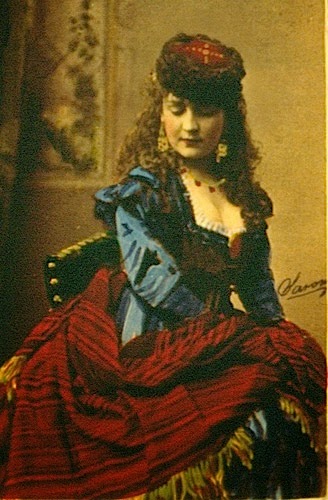Today, the actress and poet Adah Isaacs Menken (1835 – 1868) has been largely forgotten and when her name crops up at all it is usually in association with Algernon Swinburne, with whom she reportedly had an affair. But in the mid nineteenth century, both in her native USA and in Britain, she was the Lady Gaga of her day—a sensational performer in various erotic guises and at one time the highest paid actress in the world.
Like Lady Gaga, she entered show business early and with some éclat. She also seems to have been obsessed with dressing up in outrageous costumes that reflected her need to regularly re-invent herself. Like Gaga too, she changed her name. She had begun life as plain Ada McCord, a child with Creole blood, but later, each of her three marriages gave her a chance to add exotic elements to her name. By her death she had adopted both the name and the faith of her Jewish husband. Today, in some quarters of the States, her Creole ancestry has made her a black icon of female liberation.
Menken had always expressed an interest in writing poetry and by her early thirties she had amassed enough material for a book. Tragically, in 1868 at the age of just 33, she died suddenly of peritonitis complicated by TB and a few days later, Infelicia was published privately—presumably through the auspices of her husband. Though heavily influenced by the invocatory style of Walt Whitman, Infelicia, reflects a good deal of her genuine literary talent, and it is easy to appreciate the effect it must have had on a generation of female freethinkers from the 1870s onwards.
Continue reading
